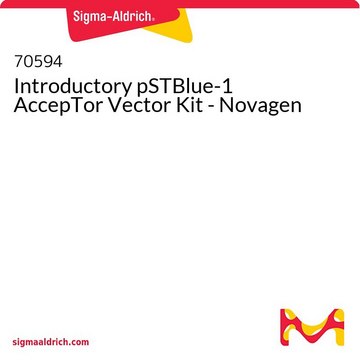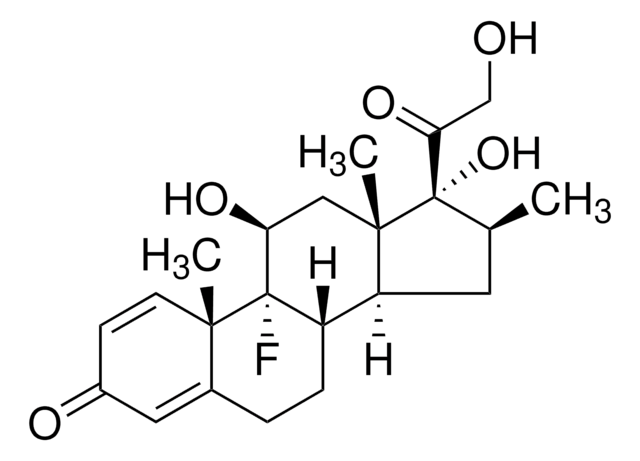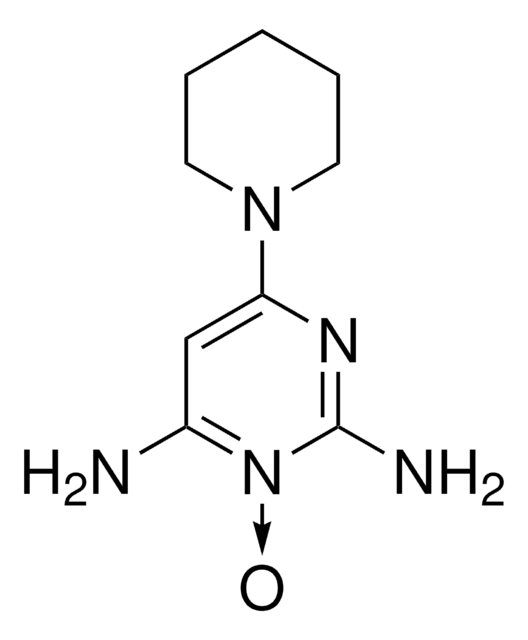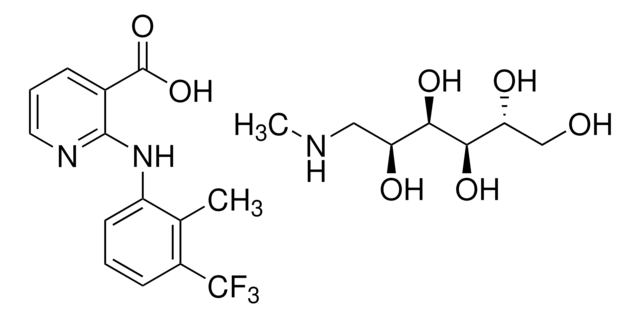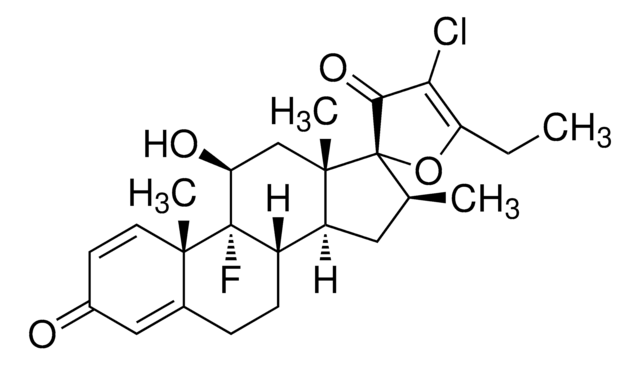73529
Clobetasol
pharmaceutical impurity standard, ≥95.0% (HPLC)
Synonym(s):
Clobetasol propionate impurity G (PhEur), (11β,16β)-21-Chloro-9-fluoro-11,17-dihydroxy-16-methylpregna-1,4-diene-3,20-dione
About This Item
Recommended Products
grade
analytical standard
Assay
≥95.0% (HPLC)
shelf life
limited shelf life, expiry date on the label
technique(s)
HPLC: suitable
gas chromatography (GC): suitable
impurities
≤10.0% related substances
≤5.0% solvents
≤5.0% water
application(s)
pharmaceutical (small molecule)
format
neat
storage temp.
2-8°C
SMILES string
C[C@H]1C[C@H]2[C@@H]3CCC4=CC(=O)C=C[C@]4(C)[C@@]3(F)[C@@H](O)C[C@]2(C)[C@@]1(O)C(=O)CCl
InChI
1S/C22H28ClFO4/c1-12-8-16-15-5-4-13-9-14(25)6-7-19(13,2)21(15,24)17(26)10-20(16,3)22(12,28)18(27)11-23/h6-7,9,12,15-17,26,28H,4-5,8,10-11H2,1-3H3/t12-,15-,16-,17-,19-,20-,21-,22-/m0/s1
InChI key
FCSHDIVRCWTZOX-DVTGEIKXSA-N
Application
Signal Word
Danger
Hazard Statements
Precautionary Statements
Hazard Classifications
Aquatic Chronic 4 - Repr. 1B - STOT RE 2
Target Organs
Adrenal gland,Immune system
Storage Class Code
6.1D - Non-combustible acute toxic Cat.3 / toxic hazardous materials or hazardous materials causing chronic effects
WGK
WGK 3
Flash Point(F)
Not applicable
Flash Point(C)
Not applicable
Choose from one of the most recent versions:
Already Own This Product?
Find documentation for the products that you have recently purchased in the Document Library.
Our team of scientists has experience in all areas of research including Life Science, Material Science, Chemical Synthesis, Chromatography, Analytical and many others.
Contact Technical Service